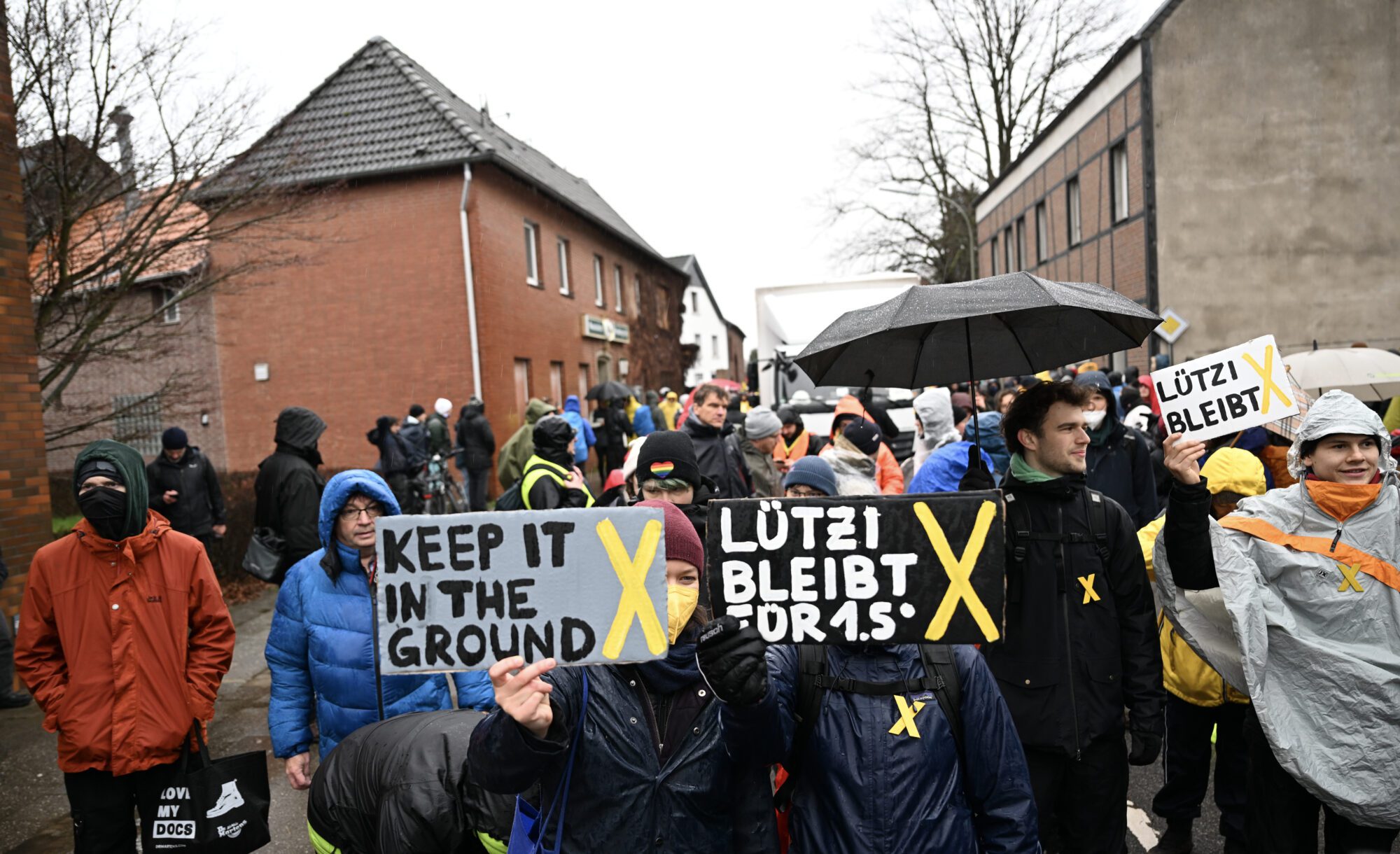
People attend a large-scale protest to stop the demolition of the village Lützerath to make way for an open-air coal mine extension on January 14, 2023.
Photo by INA FASSBENDER / AFP
The German police force is descending on the half-demolished village of Lützerath to clear out protesters blocking the expansion of the Garzweiler lignite mine, according to reports from the EUObserver and Reuters:
Police forces began clearing climate protesters out of an abandoned village in a showdown over the expansion of an opencast lignite mine that has highlighted tensions around Germany's climate policy during an energy crisis https://t.co/PXudtTKs9g pic.twitter.com/0cXoeUmVWv
— Reuters (@Reuters) January 11, 2023
Activists who moved into the village in recent years—after its former residents were cleared out to expand the adjacent lignite mine—had been ordered to evacuate the area by January 10th.
The 200 activists currently occupying the village are not expected to leave calmly.
Burning the lignite (peat-derived coal) under Lützerath will “set off a climate bomb with catastrophic consequences,” said Lukas Scott, spokesperson for Lützerath Unräumbar (‘Lützerath Unclearable’). “We will fight for every tree, for every house, for every metre in this village. Because whoever attacks Lützerath, attacks our future.”
In a scenario that replicates resistance in other places slated to be swallowed up by the mine in recent years, activists have barricaded roads into the village and are principally occupying an abandoned farmstead closest to the mine. According to Euronews, the protesters have also built a system of tree houses—a refuge in the heights to help them evade police.
In 2018, activists used similar strategies to successfully halt mining in the ancient Hambach forest.
Activists had successfully staved off the bulldozers of the mining company RWE, preventing them from tearing up Lützerath, but in October 2022, with an energy crisis looming, the German government finally authorised the expansion of the mine into the village.
The company had already bought out all but one of the residents and torn down half of the tiny municipality, according to DW. Just one farmer, Eckardt Heukamp, had held out. His ten-year fight against the mining company ended in March 2022 when a court ruled he had to leave. He was compensated and given a farm in another location, but Lützerath had been his lifelong home.

Lignite, also called brown coal, is the lowest grade coal and the least efficient, meaning it requires burning more—and hence releasing more carbon—to get the same amount of energy as purer forms of coal. Studies conflict on whether the mine, which already spans 80 square kilometres and has destroyed 20 villages—actually needs to be expanded to meet Germany’s current energy needs. The region of North Rhine-Westphalia where Lützerath is located contains Europe’s largest lignite reserves.
Robert Habeck, the Green party’s minister for economy and climate action announced lignite would be phased out in 2030 instead of 2028. Still, it’s too little, too late for both the village and the climate activists.
